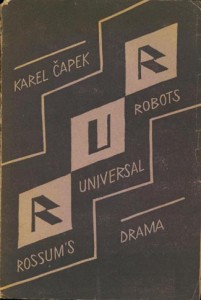 Are human bodies merely machines controlled by our vindictive minds and the minds of those whose authority we are under?
Are human bodies merely machines controlled by our vindictive minds and the minds of those whose authority we are under?
At the turn of the 20th century, Western culture was optimistic and scientific advancements were providing society with a faith in human achievement. Darwin’s research into the origins of species seemed to prove that humans had progressed beyond other animals. Early twentieth century life was littered with new innovations such as Henry Ford’s ‘horseless carriage’, not to mention the invention of railways, electric lighting and the airplane. Science was aiding human progression and growth dramatically in the early years of the twentieth century. However, this blissful view of progressive science was torn down by the destruction of The Great War. Trench warfare saw the birth of new weaponry; rifles that could kill a man up to 1400 metres away, shells containing chlorine gas, and the introduction of tanks. All of these showed the brutal side of science. The positive and hopeful view of science had been shattered; the abuse of technology had been exposed.
But what is the real weapon? The human body itself or the machine it controls?
In Rossum’s Universal Robots, Capek challenged the typical utopian notion of science that was so prevalent before the Great War. The robot revolt at the end of the play highlights this topic perfectly. Although the idea of a mechanised workforce seems progressive and conforms to the early twentieth century view of science, this is quickly shot down by the robot uprising. The robots are secretly given a bit of humanity by Dr Gall, as we find out in Act 2 (p57-61), which allows them to form opinions and strive for freedom. The workers that were once humanity’s loyal subjects quickly turn into a force stronger than the humans could contend with. The element of humanity that Dr. Gall gives the robots transforms them into an army. Capek seems to be warning us of further negative effects science could have upon humanity should we develop such technology as Rossum did. Yet his message is also deeper.
In the Saturday Review, 1923, Capek remarked ‘For myself, I confess that as the author, I was much more interested in men than in robots’. He was highlighting the fact that it is not the robots that are the focus of his tale; the humans in the play are the heart of the story’s narrative. It is not simply the science that has created the robots that is to blame for the destruction and misery, but the humans behind it. Old Rossum is not to blame, as he only created the technology, but rather Domin is guilty for spreading the technology so far. The Great War exposed the devastating effects of some sciences, but without the army generals and the tank drivers- the humans controlling the science- the destruction would not have occurred. How far does Capek show humanity as a weapon in the wake of The Great War? Are each and every one of us a potential weapon, a potential robot, a potential body to be manipulated by authority, science and war?
Sarah Hunter
2nd Year Undergraduate
Member of the ‘Twentieth Century Literature and Science: Remaking the Body’ module

Recent Comments